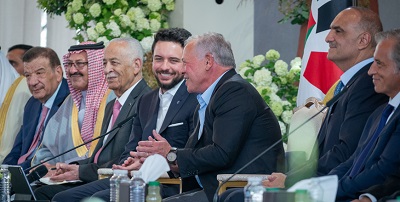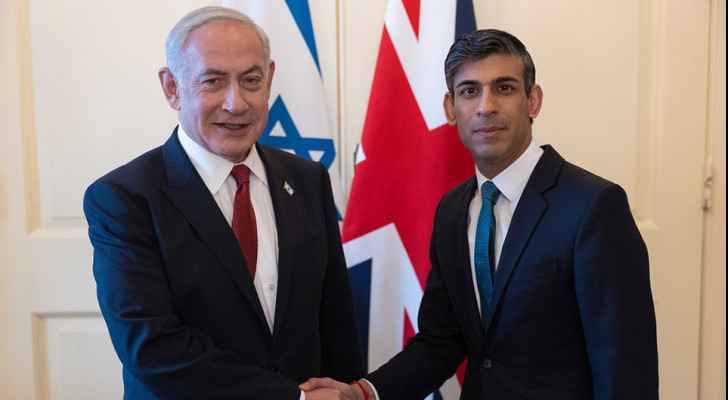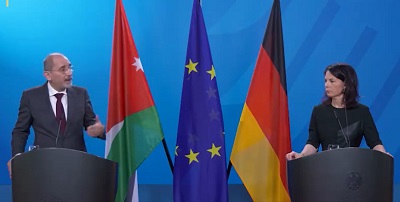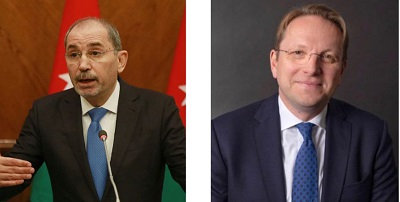History, according to Qatar’s former emir - By Abdulrahman al-Rashed, Asharq al-Awsat.
To some, truth is not important. What’s important is what can be shown to people. This is what Doha is trying to do. It has fabricated facts like the case is with the recent documentary that forged the details of Hamad’s coup on his father and alleged there was a conspiracy to bring the father back to power.
Since the coup was a scandal that undermines the legitimacy of the current governance, I never thought Qatar’s government will bring up its recent history especially that Qatar has the worst reputation in the Gulf. Its reputation is so bad that it’s actually difficult to whitewash it with forged documentaries and false testimonies especially that most witnesses are still alive. The government’s reputation is much worse as apart from the coup, it’s allied with Iran, Hamas, Hezbollah, al-Qaeda, al-Nusra Front, Bin Laden and Golani.
The documentary began with narrating the biography of Sheikh Hamad who governs Qatar from behind the curtains. The tragedy began in 1995 when the son seized his father’s governance, shaking the entire Gulf, and not just the Qatari, society. Hamad bin Khalifa’s new story says three countries came together, conspired against him and tried to stage a coup the next year.
In 1996 and for the next seven years, Qatar was only protected by a small defense force and the police. Qatar is a city state whose population at the time did not exceed 0.5 million, of whom one quarter were Qataris. It would not have been difficult for a large neighboring state, like Saudi Arabia, to intervene if it wanted to, but it didn't. The rest of the Gulf countries did the same as the Gulf Cooperation Council charter governs the six countries that are linked to each other geographically and tribally. If these countries wanted to change the regime in Qatar, they could have easily done so. Legally speaking, legitimacy was for the father Khalifa whom his son treacherously eliminated from power. Gulf countries, however, did not intervene and only tried to contain the dispute between the father and the son and to settle it in a friendly manner. When Abu Dhabi hosted the father, it asked him to respect its laws and not practice any political activity. Riyadh did the same. I met Sheikh Khalifa, the angry and hurt father, in his hotel suite in Abu Dhabi back then when I was working on a movie about the Kuwait invasion. I was meeting him because the deposed emir had played a role in Kuwait’s liberation. Abu Dhabi did not want us to talk about the coup during the interview.
Not a difficult task
Toppling Hamad’s regime in 1996 would not have been a difficult task if these countries had wanted to topple it. They would’ve simply decided to hold on to Khalifa as a legitimate ruler since Hamad’s government came to power via a coup. They could have entered Doha with Khalifa and seized it in one day.
People in Doha would have certainly not resisted the return of their deposed emir who was known for not resorting to violence and for treating his citizens well – unlike his son, the new ruler who expelled 5,000 from Al-Ghufran tribe from Al-Murrah and stripped some of them from their nationality because they did not support his coup! Saudi Arabia, the UAE and Bahrain made a historical mistake when they thought well of Hamad, received his deposed father and the 5,000 expelled Qataris and settled with reconciliation attempts. They should have returned Khalifa on their tanks. Perhaps this is what pushed the angry father to try his luck and stage a coup with his men in Doha to return to power. His conspiracy, however, was weak and primitive so it failed. His son Hamad also knew all about it thanks to his men who infiltrated his father’s entourage. If Riyadh wanted to depose Hamad back then, it would’ve been impossible to fail since the legitimate ruler was with it. However, it did not. There was neither an American base nor a large number of Qatari troops protecting Hamad, and the distance between Saudi Arabia’s and Doha’s borders is barely 94 kilometers.
Hamad bin Khalifa, who staged the coup, did not dare forge the truth back then and he did not make any accusations against his neighbors like he’s doing now because he knew that Saudi troops could raise Qatar’s flags and bring Khalifa back to the palace in Doha within hours. He knew that most countries and the Qatari people will support the return of legitimacy. Gulf countries, however, did not do anything because they usually avoid intervening in royal families’ disputes and let them work them out on their own.
So why has Hamad decided to produce a documentary that alleges he was the target of Saudi-Emirati-Bahraini conspiracies? It’s because he can only fabricate stories to explain to people why he has problems with the region’s countries. We wish they had conspired, intervened and returned Khalifa to power as they would have changed the history of the Arab region for the better as it has suffered from extremism and chaos ever since Hamad’s coup.
Latest News
 King from Mafraq: Jordan’s security, sovereignty above all considerations
King from Mafraq: Jordan’s security, sovereignty above all considerations Sunak tells Netanyahu to “allow calm heads to prevail”
Sunak tells Netanyahu to “allow calm heads to prevail” Safadi, Germany’s Baerbock discuss war on Gaza, regional escalation
Safadi, Germany’s Baerbock discuss war on Gaza, regional escalation FM, EU commissioner discuss development cooperation, regional de-escalation
FM, EU commissioner discuss development cooperation, regional de-escalation Jon Stewart unpacks Iran launching missiles at Israel
Jon Stewart unpacks Iran launching missiles at Israel
Most Read Articles
- Senate president, Iraqi president discuss bilateral ties, regional issues
- King from Mafraq: Jordan’s security, sovereignty above all considerations
- Sunak tells Netanyahu to “allow calm heads to prevail”
- JHCO dispatches 75-truck convoy of food aid to Gaza
- Sudanese rue shattered dreams as war enters second year
- UN agency finds unexploded 1,000-pound bombs in Gaza schools
- Egyptian Foreign Minister condemns potential Palestinian displacement as 'war crime'
- Jordan monitors citizens in UAE amid weather concerns
- Making emerging technologies safe for democracy - By Marietje Schaake and Steven Schuurman, The Jordan Times
- Massive fire engulfs Copenhagen’s historic stock exchange